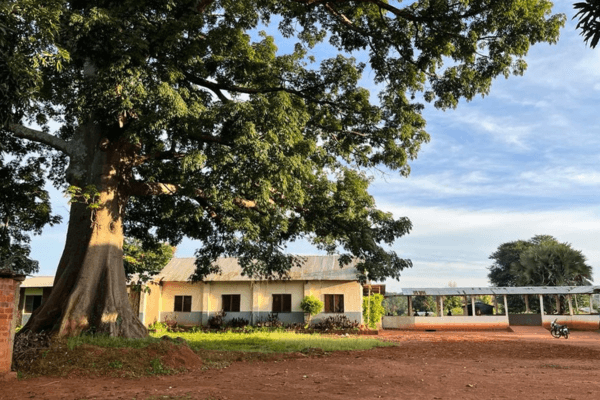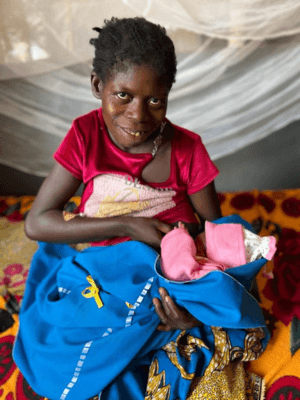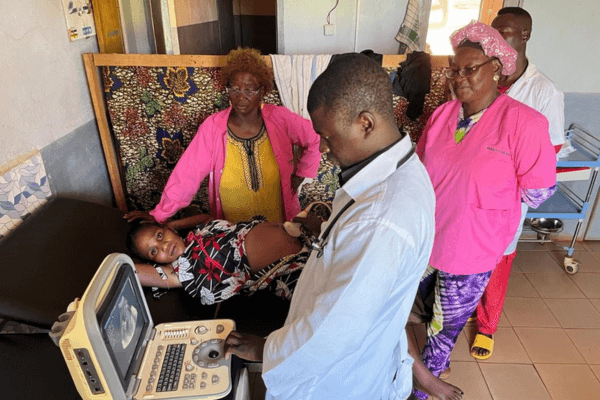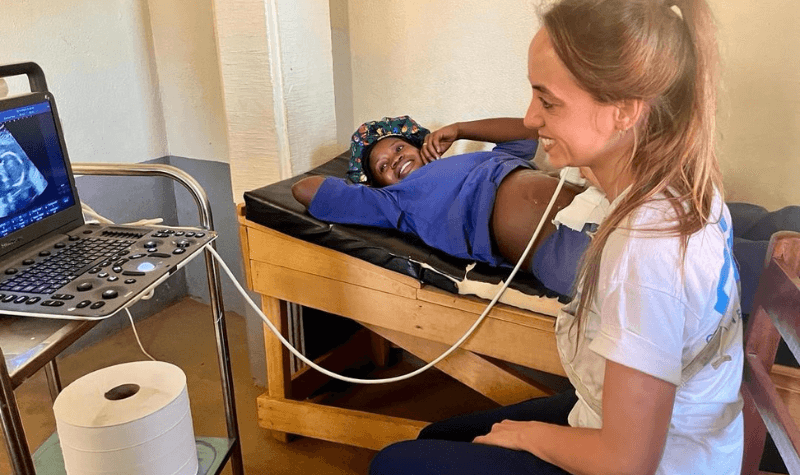Cap Anamur Strengthens Women’s Health in the Central African Republic
The civil war in the Central African Republic, which has been going on for decades, means that there are hardly any stable healthcare facilities in the country. Women suffer particularly from this situation and every pregnancy and birth carries a high risk. Cap Anamur is therefore strengthening women's health in the country by operating a hospital.
The probability of dying from pregnancy or birth complications is 118 times higher in the Central African Republic than in Germany.d. It is therefore of great importance to strengthen women’s health so that women can give birth safely.
Cap Anamur rebuilt a destroyed hospital in Bossembélé in 2013
At a time when the ongoing civil war was reaching a brutal climax, we decided to provide emergency medical aid in the country. In Bossembélé, we rebuilt a completely destroyed hospital. With the operation of the hospital and another clinic in Yaloke, around 70 kilometers away, we have been providing medical care for around 150,000 people in the region ever since. This is also urgently needed, as there is an ongoing humanitarian emergency in the country.
As both the infant mortality rate and the mortality rate for women during pregnancy and childbirth in the Central African Republic are the highest in the world, one of our focuses is on strengthening women’s health in our health facility.

At our hospital, we focus on strengthening women’s health
In the “Maternité” department, women are cared for not only during, but also before their birth. The obstetrics team carries out over 130 check-ups every month to advise women, identify complications and risks at an early stage and prevent potentially threatening illnesses. Cap Anamur offers women these important preventive examinations and medication free of charge. Even after the birth, women are cared for in the postpartum period and further family planning is offered.
The obstetrics department attends an average of 45 births per month. It is also possible to perform an (emergency) caesarean section at any time. Many women are referred from more distant regions and from smaller health centers, especially when problems or complications arise during childbirth. To do this, the women often have to make a long and exhausting journey in labor. As a result, many women come to us completely exhausted.

Even difficult births are successful in our hospital
25-year-old Catherine, who had been in labor for over 20 hours and was brought to the hospital on a motorcycle, was cared for by our gynecologist Judith:
“After a long, exhausting journey, we had to determine that the birth had stopped in the delivery room. The reason was a misalignment of the child’s head. Actually a prerequisite for a C-section. However, as this operation is always associated with many risks for mother and child and also represents an enormous risk for future pregnancies, the pros and cons should always be weighed up carefully.
Especially when you consider that women in the Central African Republic have an average of six children.
So I made one last attempt to avoid a C-section and make a natural birth possible after all by turning the baby’s head internally so that it could pass through the pelvis. The young mother did so well and the rotation was successful! With the last of her strength, Catherine then gave birth to a healthy daughter weighing 2600 g within the next half hour.”

Recognizing and professionally treating gynaecological diseases
In addition to obstetrics, women with gynecological diseases are also treated in the hospitals in Bossembélé and Yaloké. Many diseases can be diagnosed by means of laboratory and ultrasound examinations. To this end, Judith trains her colleagues in the use of the ultrasound device.
This meant that 30-year-old Kadjija could also be helped. “The young woman presented to our gynecology outpatient clinic with acute lower abdominal pain. The ultrasound revealed an urgent suspicion of an ectopic pregnancy. An emergency operation carried out immediately saved the young woman,” reports Judith.
Judith gives an impressive account of her six-month assignment as a doctor in the Central African Republic in her employee portrait. She describes her time at the hospital as follows: “Being able to play a part in ensuring that women in the Bossembélé region can give birth safely is simply a wonderful, empowering and inspiring job.”
In an article in the Westdeutsche Allgemeine Zeitung, she also reports on her time in the Central African Republic.

